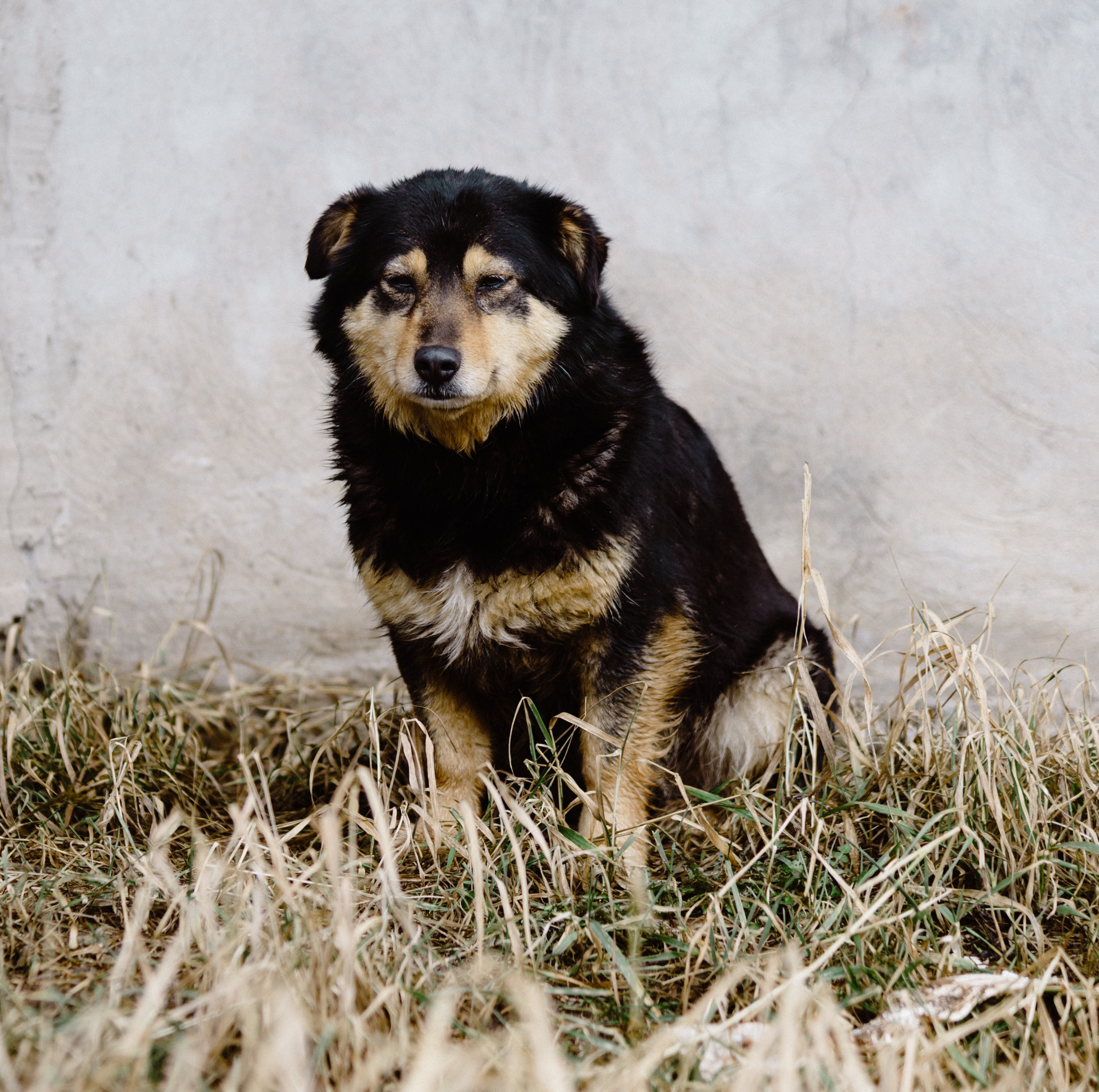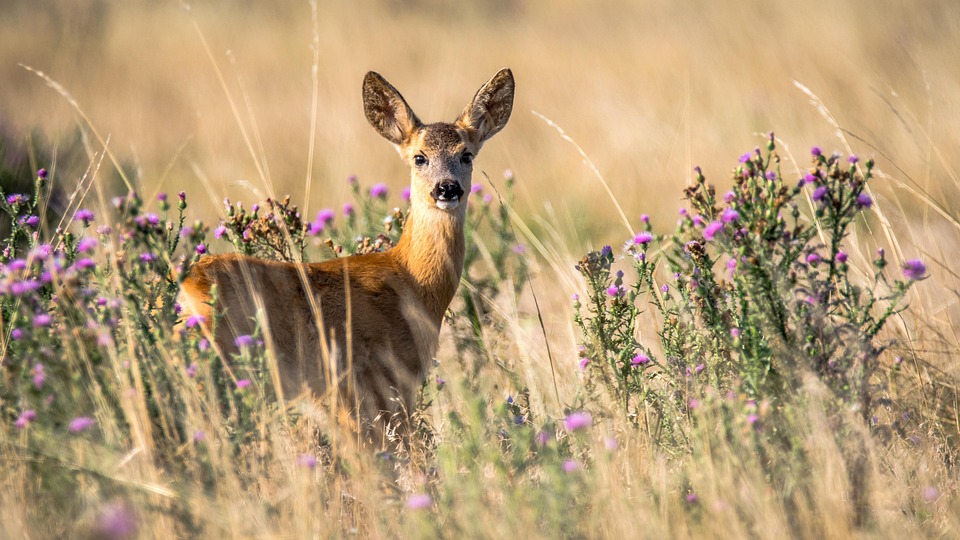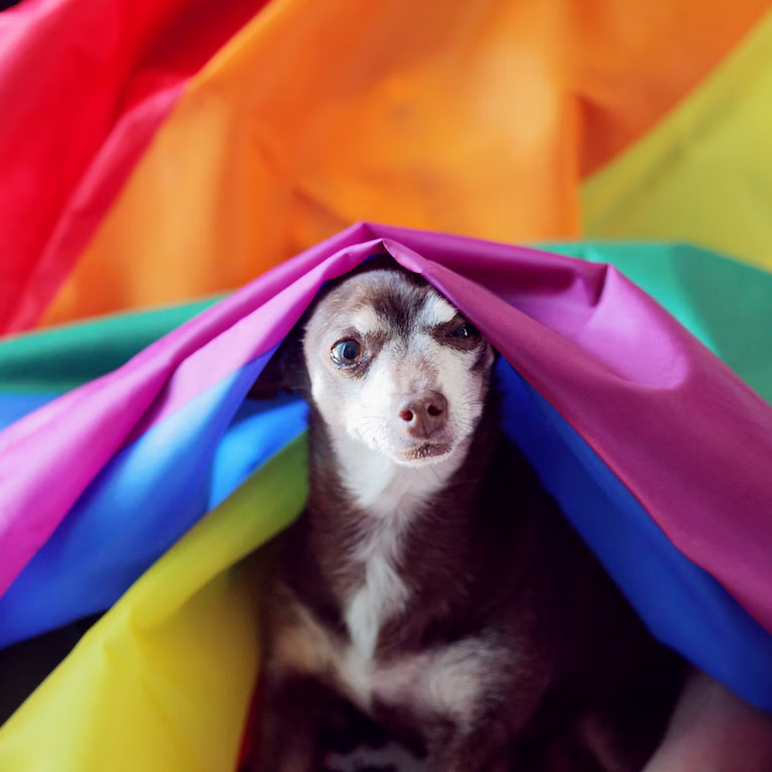Zoosexuality and the Social Unconscious

Hi, Tarro here. I felt like this article needed a bit of a preface just to give some context. This article is based entirely around my experience and is talking about the sentiment that I’ve seen. I grew up in an already intolerant area, and social perception towards a lot of alternative sexualities was already bad. This does not mean that everyone in the world actively hates zoos. It’s just a commentary on the social unconscious that exists in the society I see. It is not necessarily indicative of the experiences you may have. So, just keep that in mind. Anyway, preface over, onto the article!
It’s no secret that many people have a generally negative view of zoosexuality. While the studies have never been done, I bet that if you asked the average person on the street whether or not bestiality should be legal, nine out of ten would probably say no. But I think there’s an interesting observation to be made here. I don’t think most people have ever though of zoosexuality more than a few times in their lives. Unless you’re either a zoo yourself, a furry, or someone who bullies zoos on the internet, most people just never come across it, and therefore haven’t done much thinking on the topic. Certainly not enough to make a judgment call about a whole group of people. And yet the social reaction is so strong. I want to dive into a few reasons why this might be the case. While I know that it might be uncomfortable, I think that understanding this concept could be a key point in understanding how to circumnavigate this unconscious bias in the future. Now everyone is different, and by no means is this going to be all encompassing. There are just the things that I’ve seen the most socially. With that said, lets go through a historical understanding of why people tend to view zoosexuality negatively.
The first major thing that affects people’s opinions on the topic is how animals are viewed in society. As soon as we were able to capture animals, they were given the role of labourers. They were tools that people used in order to do things that they couldn’t themselves, whether that was travel faster, plow better, or deal with pests that they themselves could not. They were lesser creatures that we utilized. They were also sources of food. They were kept and bred specifically in order to feed us. They weren’t even viewed as tools. They were viewed as a resource. Moving forward in history, technology began to advance past what animals were capable of. Machines slowly grew to do everything we needed. And so the role of animals changed. They went from a work force and a food source to just a food source. And it was a food source people were hungry for. The need for animal based food increased significantly as demand grew, and so instead of just having a few animals on a farm, we created factory farms, where we inflict atrocities on generations of animals in order to continue to meet the demand. Some animals, however, got lucky. They became staple “pets”, and were invited into our homes. While this is definitely preferable to the slaughter that many other animals were subjected to, they still have issues of their own. They’re mutilated, usually enclosed, and treated as trophies or sources of entertainment. At the absolute best, they’re treated as babies for the rest of their lives. Things to coddle and coo over, unable to fulfill any of their own wants and needs. They’re still viewed as lesser beings to the superior human race. All of this is goes to show a few things about the way that humans view animals. First of all, they don’t have autonomy. Sure, we created the environment that we live in by destroying theirs, but now it’s a social belief that they don’t have the ability to make their own decisions. Also, they’re dumb. They don’t fit human metrics of intelligence and therefore any intellect that they do show is negligible. And since they haven’t found a way to throw an animal uprising against their conditions, clearly they don’t want to. We view animals as creatures that aren’t on par with humans. We’ve subjected them to the role of being subservient to us, and to bring things back to bestiality, in the social consciousness that means that they aren’t able to mate with us. Humans that choose to engage in sex with animals are seen as dirty and gross for wanting to fuck creatures without the same standing. And animals aren’t given the chance to want to have sex with humans because they’re treated as slaves that can’t want anything. One of the things that zoos hear all the time is “Why would you have sex with a an animal when other humans exist?”. The existence of this question implies the point that I’m making here. Because people see animals as creatures that are objectively worse than humans, any human that wants to have sex with an animal is degrading themselves to that same caste to do it. Therefore, that person can be viewed with the same disdain that we view those animals. But there’s more to the passive dislike of zoos than just this.
Lets talk about something a little bit less controversial. Religion.
Throughout history, different religions have had very different views on bestiality. The Greek and Norse mythos are full of gods and animals and people all having wild transformation sex non stop. From Zeus turning into a swan to have sex with Leda a totally normal human to Loki transforming into a horse to have sex with another horse. Records of bestiality were also very common in ancient Egypt. There are hieroglyphs dating back to 3000 BC depicting sex between humans and animals. However, all that changed with the coming of one specific religion. Christianity. The rise of Christianity was a huge movement for sexual repression all around the world. Lust was seen a human weakness to be overcome. A temptation by the devil to indulge in bodily pleasures over spiritual ones. In fact, back in 200AD there was even a prevalent theory that Eve was not just tempted in the garden of Eden. She was seduced by the snake. Because sex was used as the temptation for the original sin, that meant that all sex was also sinful. Coming into the fourth century, abstinence was the prevalent idea towards sex. Sex was a necessary evil that could only be done on certain days of the week, and not on spiritual holidays, or you were dishonouring the saints that those days were attributed to. And that’s just normal man woman missionary sex. To even think about anything other than that was blasphemous. This isn’t something that just affected zoosexuality. This is something that we’re still dealing with the ramifications of to this day. The effect that Christianity had on sexuality is something that as a society we’ve slowly been peeling off in layers for centuries, starting with the groups that have the most power and working our way out. Straight white men were given permission to get blowjobs long before we even started talking about gay rights. It took a long long long time before we started seeing society shake off a few of the chains of the holy spirit. The conversation started moving around
the 1900’s, however the “sexual revolution” didn’t really start until the 1950’s. From there, we started seeing more and more conversations around sex, what it means, and who can have it. And it’s still a conversation that’s ongoing today. It was a commonly held belief for a frankly shocking amount of time that women don’t masturbate, especially considering that women are half of the population. I know women today that didn’t learn that they have a urethra until they were in their 40s or 50s. We’re clearly still getting the basics down. And even then, we aren’t on solid footing either. There are still parts of the world where homosexuality is a sin, and where talking about homosexuality at all is seen as a form of grooming. Relating all of this back to zoosexuality, there’s a lot more women than there are zoos. There’s a lot more people that identify as gay or bi than people that identify as zoosexual. Escaping from the reach of Christian morality is a hard. Many of the groups that we may think are free from that struggle are still being attacked too this day. Even in places generally considered to be “progressive” like the United States, things like gay rights are being challenged in the highest courts of government, and things like the right to abortion are being overturned altogether.We here at Zooey by no means want to disparage the fights that other minority groups have gone through in order to get the rights that they have, but many zoos are in those minority groups, and it’s important to learn from our history. A lot of those same people trying to support LGBT causes shun zoos for the same reason that people shun those same causes they support. But, they don’t realize that. And part of the reason that they don’t realize it is that the Christian moral system is so ingrained in our society that people can accept those beliefs without even questioning it. Anytime someone says “Sex with animals is wrong because it’s not natural, because it doesn’t feel right, because it’s a perversion, what that means is that they were taught from religion that it’s something that should be shunned, and there just hasn’t been a whole social movement to shake them from that belief. But, there’s one more reason that I believe zoosexuality is still held so negatively, and that’s time.
One last major reason that I believe zoosexuality gets such a negative image is because of the rate in which society changes. On a hot summer day, if you have a chunk of ice and bring it outside, it isn’t going to melt immediately. Instead, it’s going to take a while for the sun to permeate through it. If you bring it back inside and put it in the freezer, it’s going to take longer again. This is exactly how ideas in society work too. The ice is a currently held belief. Information is the sun, and bad press is the freezer. When it comes to zoosexuality, we’ve been out of the sun for a long time. The summation of the last two points among other things has been a lot of passively built up stigma against zoosexuality, and now we’re trying to bring in some sunlight. But it isn’t easy. At this point, any time the topic is discussed, it’s with an extremely negative light. The idea that it’s a bad thing is reinforced in the media, and therefore our ice is back in the freezer again, growing harder and harder to melt. Even when people do try to create either positive or even neutral content, they’re bombarded with negativity. A harsh reality of this movement is that it’s going to take a lot of time to change this. Passive social perception is a complicated issue, and requires enough information and content that every individual eventually finds the one thing that makes it click in their brain. And sometimes people just don’t. Things like racism, sexism and homophobia still exist exactly because of this problem. We can scientifically prove that racism is dumb, and that there’s no real reason for homophobia. Geneticists, sociologists, psychologists can all come out and say definitively that there is no scientific backing for any of it, but that’s never going to change everyone’s minds. Don’t get me wrong, all of that support is great and helpful for managing to melt the surface layer faster. And we aren’t even at the point where we’re getting that support from the scientific community. There’s a big enough percentage of the population that just has those thoughts and beliefs intrinsically inbuilt, and they’re never really going to change their ways. As awful as it sounds to say, sometimes its just a matter of waiting for an older generation to pass on, and for a newer generation to take their place as the ones making decisions in society. Sometimes, the racist grandparent in the family is just going to stay racist, and it’s way harder to change their mind than it is to just wait for them to not have a voice to raise that opinion anymore. Right now, we just have to accept that some people aren’t going to support the movement, especially without the momentum behind us. As hard as it is to say, we might not be the generation that manages to finally have that block of ice melt. But the longer that we can tolerate holding it in the sun, the more progress we can present the zoos of the future, so that eventually we’ll be able to help in creating the social changes that we dream of.
By no means did I write this to imply that we’re doomed, or that there’s no point in trying. So many movements have done it before us, we’re set up for success. We’ve got the blueprints and the passion to make it happen. I wrote this because I think that it’s information that we can use in order to try and advance our cause. We have so many fronts to fight in this battle, but there are three that I personally believe are the ones that can help us the most to focus on.
We have to combat the idea that animals are lesser beings that can’t make decision, and that humans who would choose animal partners are gross because of it. We can do that by advancing causes towards animal autonomy, and show that animals are people just like us, and deserve the same rights and respect that humans receive.
We have to fight against the oppressive ghost of Christian morality and sexual repression. We do that by backing the sexual freedom movement, LGBT causes, and show that sexuality is something that’s healthy and natural to explore, whether it’s showing that straight men enjoying pegging is fine, or that mating with a horse is great too.
We have to find a way to modify social perception, and change the minds of people en masse, speeding up the glacial pace of social change. We do that by spreading information, creating positive zoo focused content and just being consistent and determined. We need to make sure that we keep pushing, no matter how hard it is.
The convenient part is that I think all of those goals are things that we would collectively want as a group anyway. And, in at least two of those three goals we’re not alone. There are lots of other people advocating for sexual freedom and animal rights, even if they aren’t backing both of them at the same time for the same reason. More and more people are becoming aware of how terrible factory farming is, both from a moral and climate standpoint. And pride parades and other LGBT positivity events are seeing record attendees year after year. We’re on the path to creating a future where we can have positive and open relationships with the partners that we choose, human or animal. So that we don’t have to be exposed to the hatred. So that if you stopped a random person on the street and asked them what they thought about zoosexuality, you’d receive a positive response instead. Until then, lets come together as a community, support each other through the negativity, and work together to remove the social bias.
Article written by Tarro (July 2022)
Find them at https://twitter.com/hereforthezoo




